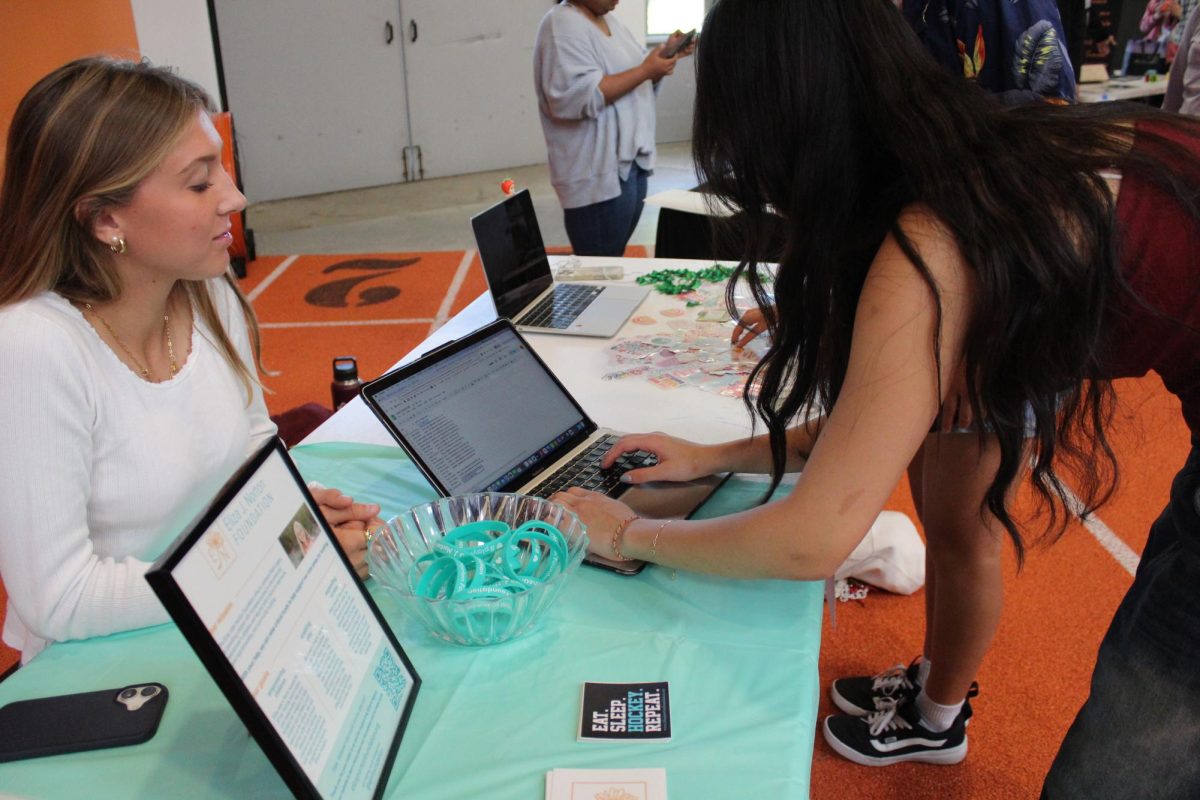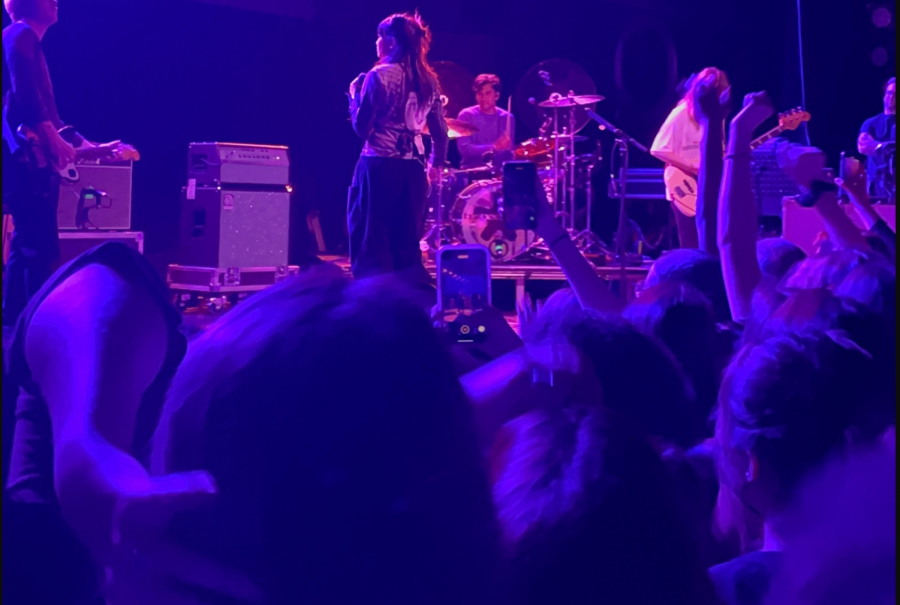Opinion: Astroworld disaster stresses need for concert safety
Credit: Genevieve Morrison
WSPN’s Olivia Tawakol discusses Travis Scott’s deadly Astroworld festival and the need for increased concert safety.
November 20, 2021
The tragedy at Travis Scott’s Astroworld Festival in Houston, Texas, left millions speechless. Dozens of concertgoers were hospitalized, and at least 10 people died after the crowd surged during the concert on Friday, Nov. 5. The question of who is responsible for the disaster has created much controversy amongst Scott’s fans. Scott is facing criticism for letting the show continue while people were getting injured, and over a dozen lawsuits have been filed against him. While it is still unclear whether the artist or the concert organizers should bear more of the responsibility for the tragedy, it is evident that more safety precautions should have been taken.
After 10 people died, including a 9-year-old boy, and many more were injured, more than a dozen lawsuits against Scott and the concert organizers have been filed. Many are seeking millions of dollars in damages; one lawsuit expresses that the artist often encourages his fans to ‘rage’ at his concerts. In 2017, several people were injured during a concert after Scott encouraged fans to pass security and rush the stage. Scott paid over $6,000 to two injured people after pleading guilty to disorderly conduct. While no evidence has been found thus far that Scott had encouraged this behavior at the most recent Astroworld festival, the investigation is still ongoing.
Many people were quick to blame Scott for the deaths of his fans, expressing that he could have prevented more deaths and injuries by stopping the show sooner. However, Scott claims he didn’t know about the catastrophe until hours after his performance, and that he first learned about the injuries when he attended an after-concert party. Furthermore, in deflecting blame for the tragedy, Scott’s spokesperson stated in an interview with CBS that Scott doesn’t have the ability to stop his concert, referring to an operations plan for the festival that states that only the executive producer and concert producer have the authority to stop the show.
Surely any artist should be able to find a way to stop their show when their fans’ safety is at stake. Indeed, Scott must have realized something was wrong, as he had paused a few times throughout his performance to request assistance for distressed fans. A viral video posted on social media shows crowd members desperately trying to get a cameraman to stop the show, however, they were unable to get him to do anything about it. Scott was clearly more careless than he should have been, but the concert organizers blithely allowed the show to continue.
The tragic events from the concert highlight the importance of concert safety and the necessity of proper crowd management. Concerts need to ensure the health and safety of attendees. Especially after Astroworld, concert organizers should enact more vigorous guidelines and rules to ensure greater safety and a needed peace of mind for concertgoers. To that end, some cities have already begun to revamp their concert safety measures. Texas’s new state task force, assigned to focus on concert safety, is creating more ways to increase security.
The disaster of Astroworld should be seen as a warning to states and concert organizers, compelling them to increase their overall concert security. This tragedy isn’t completely extraordinary, which goes to show that something needs to change.


























